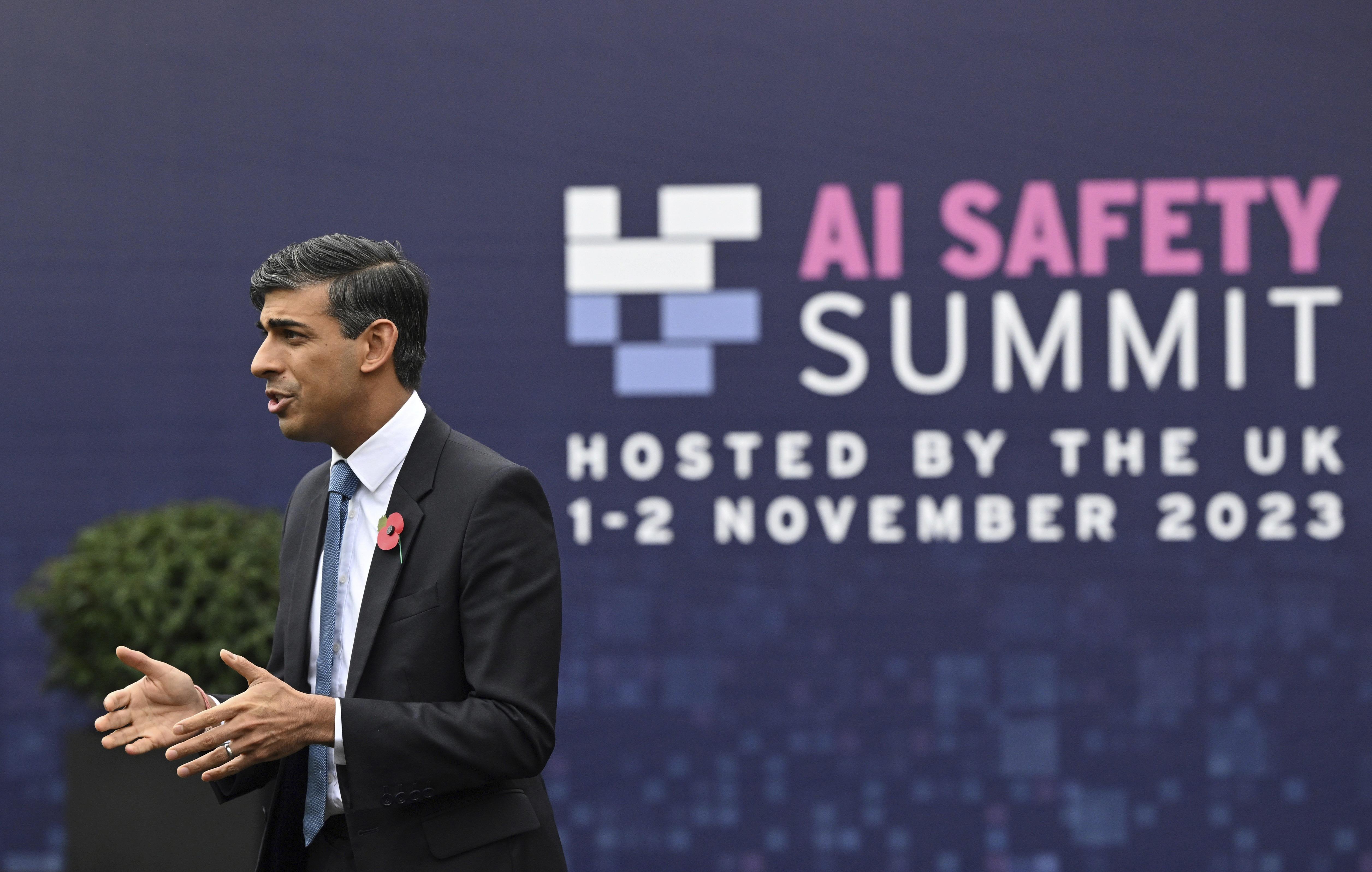 Britain's Prime Minister Rishi Sunak speaks to journalists upon his arrival for the second day of the UK Artificial Intelligence (AI) Safety Summit, at Bletchley Park, in Bletchley, England, Nov 2, 2023. (PHOTO / POOL VIA AP)
Britain's Prime Minister Rishi Sunak speaks to journalists upon his arrival for the second day of the UK Artificial Intelligence (AI) Safety Summit, at Bletchley Park, in Bletchley, England, Nov 2, 2023. (PHOTO / POOL VIA AP)
Talking with British Prime Minister Rishi Sunak at the end of the world's first AI Safety Summit held at Bletchley Park on Nov 1-2, US entrepreneur Elon Musk thanked him for inviting China, saying "If they're not participants, it's pointless."
The same view was expressed by Carnegie Endowment for International Peace President Mariano-Florentino Cuellar, who stressed that China's participation makes the summit a truly global dialogue. Many other experts also said China's presence at such meetings is essential.
Data from the World Intellectual Property Organization show Chinese institutions applied for as many as 29,863 AI-related patents last year, accounting for more than 40 percent of the world's total. As such, politicians, entrepreneurs and organization with even the basic knowledge of artificial intelligence cannot afford to keep China away from any global AI summit, let alone turn it into a biased discussion as some scatterbrained Western politicians tried to do before the Bletchley Park meeting.
More than through technological achievements, China has contributed to AI development with its governance philosophy, which is embodied in its people-centric Global Initiative for Artificial Intelligence Governance that was proposed in October.
The initiative calls on AI product and service providers to respect the recipient countries' sovereignty and jurisdiction, prevent the abuse of AI by extremist and/or terrorist groups, and requires all players, major ones in particular, to be cautious while developing AI in the military sector. All countries, irrespective of their size, development status and political system, enjoying the right to develop and use AI is an essential part of China's initiative. And its spirit is similar to the newly issued Bletchley Declaration that affirmed "the need for the safe development of AI and for the transformative opportunities of AI to be used for good and for all, in an inclusive manner in our countries and globally".
The fact that the first AI summit was held at Bletchley Park is of historical significance, for the place was a British government cryptological center during World War II where Alan Turing and other agents of the Ultra intelligence project decoded Germany's secret messages, most notably those that were encrypted with the German "Enigma" and "Tunny" cipher machines. Many experts say the code breakers at Bletchley Park, 80 kilometers northwest of London, by playing a big role in defeating the common enemy, may have shortened the war by as much as two years.
Now almost eight decades later, countries have to deal with the haunting threats of ethnic, religious and sectarian violence, rising white supremacists and marauding right-wing forces, which in some ways are fueled by AI. So it's time for experts to use one of the world's most advanced technologies, that is, AI, to defeat these common enemies again.


